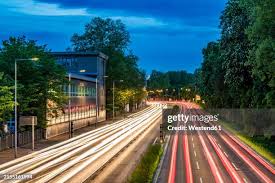Germany: A Hub of Culture, Economy, and Politics in Europe

The Importance of Germany Today
Germany, as Europe’s largest economy, plays a crucial role in shaping global financial markets, political dynamics, and cultural exchanges. Its position as a leader within the European Union (EU) and its influence on international affairs makes Germany particularly relevant in today’s interconnected world.
Economic Powerhouse
As of 2023, Germany’s economy remains robust, with a nominal GDP exceeding $4 trillion, making it the fourth-largest economy globally. The country’s manufacturing sector, especially in automotive and engineering, continues to thrive. Major companies such as Volkswagen, BMW, and Siemens are not only leaders in innovation but also significant exporters, underlining Germany’s pivotal role in global trade.
Political Landscape
Germany is also a central player in European politics. Following the recent elections, Chancellor Olaf Scholz’s government aims to address various pressing issues, including energy security and climate change. Germany’s push for green energy initiatives and sustainability goals reflects its commitment to combating climate change. The country’s leadership in EU discussions around these topics highlights its influential role on the continent.
Cultural Influence
Beyond economics and politics, Germany’s rich cultural heritage continues to garner global interest. The country’s contributions to art, philosophy, and science resonate around the world. Cultural events, such as the Berlin International Film Festival and Oktoberfest, not only attract millions of tourists annually but also showcase Germany’s diverse traditions and innovations.
Recent Developments and Global Engagement
Recently, Germany has increased its focus on international diplomacy, particularly in relation to the ongoing conflict in Ukraine. The nation has been involved in providing military and humanitarian aid, emphasizing its commitment to European security. Furthermore, Germany’s engagement in international organizations like NATO and the United Nations strengthens its influence and helps promote global stability.
Conclusion: A Nation in Transition
Germany stands at a crossroads of tradition and modernity, balancing its historical responsibilities with its future ambitions. The nation’s ability to adapt to changing global circumstances while maintaining its economic vitality and cultural values is critical for its continued success on the world stage. As Germany navigates emerging challenges, its actions will significantly impact not only Europe but also the broader global landscape. For readers, understanding Germany’s multifaceted role offers insights into economic trends, political shifts, and cultural movements that shape our contemporary world.









